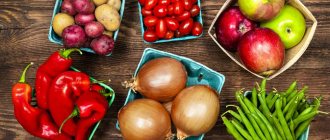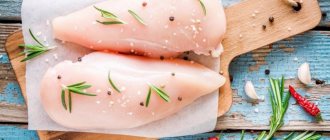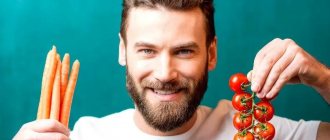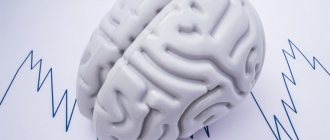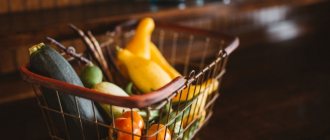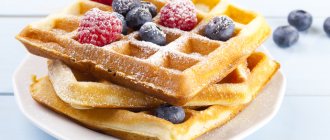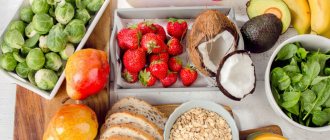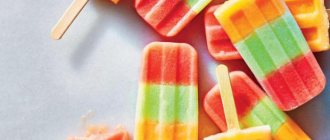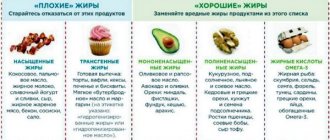Proteins are the basis for the construction of new cells in the body. But sometimes, for medical reasons, it is necessary to reduce protein intake. With a lack of building material, albumin synthesis slows down, and the body uses muscles to maintain basic functions. For a healthy person, you can consume protein-free foods for no more than one week, otherwise health problems will arise.
Principles of a protein-free diet
Protein restriction allows you to reduce weight or relieve excess stress on certain organs. Reducing protein intake is the principle of a protein-free diet. Products containing building materials for the body should be consumed in small quantities.
The diet is not intended for quick weight loss. During this period, it is not recommended to increase physical activity, since protein will be required to replenish muscle energy. A protein-free diet includes a large amount of carbohydrates, which also do not contribute to weight loss.
The daily amount of calories is about 2000. There is no point in using such a diet for weight loss for a healthy person. It is better to have protein-free days a couple of times a week.
Basically, protein restrictions are imposed by doctors for kidney or liver disease. The diet is therapeutic and allows the body to independently remove nitrogenous compounds, which play a negative role in diseases of internal organs.
Indications for diet
Protein-free foods are necessary when the following diseases are detected:
- uremia;
- liver failure;
- renal failure;
- glomerulonephritis;
- various liver or kidney tumors;
- urolithiasis disease;
- oncology;
- phenylketonuria;
- to relieve swelling;
- diabetes;
- amyloidosis;
- pyelonephritis.
When these diseases appear and a protein-free diet is abandoned, the kidneys cannot remove urea, which aggravates the course of the disease. Protein can be consumed no more than 20 g per day. However, you cannot completely give up animal protein. But you can make up for the deficiency with milk and fermented milk products.
What foods should you not eat on a protein-free diet?
- Bread in any form, when salt and eggs are added, but do not exclude home-made bread without these ingredients.
- Avoid fish, meat, eggs, seafood, cheese, and cottage cheese.
- Do not eat radishes, daikon, radish, garlic, mustard.
- Eliminate dairy products.
- Do not eat any more cakes or any confectionery products.
- If the dish contains soda or baking powder, then discard it too.
- Say no to legumes, mushrooms, soy products, nagut, peas.
- Avoid chocolate, cocoa, coffee drinks, even those with chicory.
- Stop drinking coffee, especially three-in-one coffee, and don’t eat coffee or chocolate desserts.
- You will also have to eliminate soups made with milk, mushrooms, meat, and chicken, and no longer drink broths made with animal food.
- Do not eat nuts of any origin or seeds.
- Avoid strong black tea.
- Do not touch beef and lamb fat, lard, spreads, or cooking fats added to these products.
To summarize, I would like to say that if there are no medical indications for refusing protein, then it should be eaten in reasonable quantities. Otherwise, the body will eat itself. Because he needs materials for construction. After all, our body renews itself every day, building muscles and creating new cells.
Exercising and following a protein-free diet is contraindicated!
Benefits of the diet
When using a protein-free menu, you can reduce acidity in the body and control the amount of protein in the presence of certain diseases.
When following such a diet, patients who have problems with the health of the liver or kidneys have the opportunity to improve the body’s metabolism, cleanse themselves of nitrogen compounds, improve the condition of chronic diseases and reduce the manifestations of symptoms in the acute stage.
Disadvantages of the diet
The disadvantage of using protein-free products in nutrition is that they cannot be used by athletes, as well as people with difficult physical working conditions. Great physical exertion and increased activity require a constant supply of proteins. Therefore, it can be used only at the stage of exacerbation of the disease, with a decrease in strength loads.
Protein deficiency is stressful for the body, and a long-term diet is difficult for some people. Therefore, before using a protein-free diet, consultation with a doctor is required to avoid complications after dietary restriction.
Authorized Products
When using a protein-free diet, the list of foods allowed for consumption is quite large. Depending on your doctor's prescription, you can eat 20-40 g of protein per day. Based on these data, the amount of protein and protein-free foods eaten is determined.
List of foods allowed on a protein-free diet:
- Turkey, beef, chicken, veal. The serving is no more than 55 g per day. The dish can be fried or baked.
- Weak tea, coffee.
- Herbal decoctions, compotes.
- Juices.
- Milk and fermented milk products, cottage cheese in limited quantities.
- Fruits can be eaten raw if there are no other contraindications. Otherwise you can bake it.
- In small quantities you can eat pasta dishes, porridge, peas, beans, beans.
- Butter and vegetable oil.
- Egg white (no more than 1 piece per day).
- Raw or cooked vegetables. Potatoes, carrots, cucumbers, zucchini, beets, cauliflower, broccoli, tomatoes.
- Protein-free bread in the amount of 300 g per day.
- Vegetable broths.
- Soups on the water.
- Low-fat fish, no more than 60 g per day.
When following a diet, salt is prohibited or its minimum amount is allowed. The list of products may vary depending on concomitant diseases.
What foods can you eat on a protein-free diet?
- Unsalted bread.
- Yeast unsalted pancakes and pancakes.
- Include sour cream, butter, milk, and dairy products in moderation, excluding cottage cheese and cottage cheese.
- I love any cereal.
- Any vegetables, both raw and stewed, even onions.
- Honey, jam, preserves.
- Any fresh fruit, except melons and watermelons.
- Potatoes, but only boiled ones.
- Drink jelly, compotes, eat jelly.
- You can prepare gravies from vegetables and fruits using butter and flour, just do not fry the product too much.
Prohibited Products
For those who are recommended to eat protein-free foods, the list of foods allowed for consumption is quite large. But there are still dishes that cannot be eaten at all or with restrictions.
List of prohibited products:
- broths from meat, fish, poultry;
- alcohol;
- carbonated drinks;
- animal fats, lard;
- confectionery;
- baking
Products that are partially prohibited or limited in quantity:
- meat, poultry;
- fish;
- legumes;
- porridge;
- pasta;
- if you have kidney disease, salty foods are prohibited;
- There may be restrictions on fruits containing potassium and phosphorus.
Potassium is found in apples, bananas, beets, tomatoes, soybeans, and lentils. Therefore, their use should be agreed with a doctor if you have kidney disease. It is also worth clarifying the permissible amount of milk, legumes, fermented milk products, and nuts, which are limited in some kidney pathologies.
What foods are best to avoid?
Sauces prepared with meat or fish. This also includes broths. Eating such products will contribute to the return of pain and discomfort.
A diet for kidney disease completely excludes fatty and fried foods from the diet. The use of fried meat in the daily diet will complicate digestion, causing urine to be excreted longer than usual, which will negatively affect treatment.
It is prohibited to add any hot spices and seasonings to food.
It is prohibited to add any hot spices or seasonings to cooked dishes. These products are strictly unacceptable for kidney treatment. They negatively affect the liver, which will also reduce the result of treatment.
Smoked products, pickled vegetables and pickles cannot be present on the table of a balanced diet for a patient. The products will affect the body as a whole, which will significantly affect the patient’s kidneys.
Squid, shrimp, mussels and other seafood are strictly prohibited for consumption. Excessive amounts of seafood in the diet will contribute to the development of complications.
Sausage is also excluded from the daily diet; if the patient continues to eat it, then these actions will cause an exacerbation of the pathology, which will require more effective treatment.
Recommended topic:
Edema due to kidney disease
Chocolate, candy and similar sugar products are excluded or used in small quantities. You can get informative advice on this issue from the attending physician who prescribed the course of recovery.
Dill and green onions are not recommended for use by men. For women, the diet is stricter; they will need to give up parsley, broccoli and asparagus.
It is strictly forbidden to use legume products in food in any form. Some people believe that they are used with soups, but this is a misconception.
Low-protein foods also have an effect on the body in case of kidney pathologies, so they will also need to be excluded from the daily diet and preference should be given to dishes from the approved list.
It is worth noting that when the diet is completed, the above-described products are allowed to be consumed only in small quantities, as this will provoke the return of the disease, which will require repeated treatment.
Diet according to Andreas Moritz
Andeas Moritz is a developer of alternative medicine. He recommends using protein-free foods to cleanse the liver and kidneys.
In his opinion, for a full healthy life you need long-term healthy sleep, an active lifestyle, proper nutrition and timely cleansing of the body. To cleanse the whole body, you must first clear the intestines of toxins, then the liver, kidneys and lymph. Thanks to this, toxins are removed and hormonal levels and enzymes are restored.
In his opinion, it is necessary to give up meat and dairy products, giving preference to rice, fruits, vegetables and berries.
According to this method, the intestines are cleansed using an enema, then for 1 day only fruits are consumed to cleanse the kidneys. The next day, oatmeal is eaten in the morning and you can eat only plant foods for 6 days.
Reviews from doctors about this method of alternative medicine are mixed. It is assumed that this method may worsen chronic diseases of the gastrointestinal tract. Therefore, when choosing the Andreas Moritz method, you must first consult with a gastroenterologist or therapist.
As a result of using this method, you can obtain the following results:
- restoration of intestinal function;
- restoration of vital energy;
- pigmentation and skin rashes are reduced;
- increasing immunity.
Diet recommendations
When using the diet, you should follow some recommendations to eliminate the risk of unpleasant reactions in the body:
- Drink at least 2 liters of water per day. This recommendation does not apply to kidney pathology. The drinking regime is chosen in accordance with the doctor’s recommendations.
- The amount of protein per day should not exceed 20% of the amount of food eaten.
- Before using the diet, consult a doctor.
According to reviews from patients undergoing treatment and using a protein-free diet, weight loss occurred insignificantly. In the absence of salt, weight loss in the first days occurred due to the removal of excess fluid from the body. In the absence of protein, the feeling of hunger returns quickly, so patients are forced to increase portions. Accordingly, more calories did not allow weight loss.
Limiting salt makes dishes tasteless, so this diet is difficult. But at the same time, diet foods are inexpensive.
What you can drink
First of all, the patient drinks plain water, preferably filtered independently or purchased in pharmacies. Fruit drinks will dilute the diet. Citrus juices can be used depending on what diet has been prescribed, so the patient should consult a doctor.
The patient is advised to constantly drink green tea and weak coffee. A person suffering from kidney pathologies can drink liquids in the form of compotes, jelly and the like.
If a person has been diagnosed with kidney stones, he should drink alkaline waters, which are sold in pharmacies, as often as possible. They have a beneficial effect on internal organs, which contributes to the rapid dissolution of stones.
You are allowed to drink milk, kefir and other fermented milk drinks. They are low protein foods. It is recommended to consume no more than 200 milliliters of dairy drinks daily.
There are special health cocktails, the recipe for which can be obtained from your doctor. They contain all the necessary components that normalize kidney function and return it to its original state.
Women should use chamomile infusions. Men are shown tinctures of fractional St. John's wort and similar plants.
Menu for the week
When creating a protein-free menu, you should take into account nutritional principles. The number of permitted foods is sufficient for a varied diet. Sample menu for 7 days for patients without additional restrictions:
| 1 day | breakfast | buckwheat porridge with milk, fruit, tea |
| snack | grapefruit | |
| dinner | vegetable soup, pasta with chicken | |
| afternoon tea | kefir | |
| dinner | zucchini and stuffed with vegetables | |
| Day 2 | breakfast | oatmeal with jam |
| snack | stewed carrots | |
| dinner | noodle soup, sautéed vegetables, compote | |
| afternoon tea | curdled milk | |
| dinner | carrot cutlets, apple juice | |
| Day 3 | breakfast | pumpkin casserole |
| snack | orange | |
| dinner | semolina soup, zucchini pancakes, compote | |
| afternoon tea | Ryazhenka | |
| dinner | fresh vegetable salad, rice porridge | |
| 4 day | breakfast | oatmeal porridge with milk, tea |
| snack | baked apple | |
| dinner | puree soup, rice with vegetables, fish | |
| afternoon tea | kefir | |
| dinner | millet porridge, tomato | |
| 5 day | breakfast | pumpkin casserole, tea |
| snack | vegetable salad | |
| dinner | buckwheat soup, stewed vegetables, compote | |
| afternoon tea | Ryazhenka | |
| dinner | fruit pilaf, jelly | |
| Day 6 | breakfast | zucchini pancakes, cheese, tea |
| snack | apple | |
| dinner | buckwheat with chicken, vegetable soup, compote | |
| afternoon tea | kefir | |
| dinner | mashed potatoes, carrot cutlets | |
| Day 7 | breakfast | oatmeal with jam, compote |
| snack | pear | |
| dinner | cabbage soup, baked potatoes with pollock | |
| afternoon tea | yogurt | |
| dinner | cabbage rolls with vegetables, juice. |
Diet for illnesses
Protein-free foods for patients with phenylketonuria play an important role for neuropsychic development. The protein contains phenylalanine, which has a detrimental effect on the patient. For this reason, all foods containing large amounts of protein are excluded from the diet. Such patients are recommended to take multivitamin preparations to compensate for the deficiency of essential microelements.
In case of acute renal failure, a diet is prescribed with a protein limit of up to 20 g per day. The patient has to keep track of the amount eaten in order to avoid sad consequences. As you recover, the amount of protein is increased to 40 g per day.
In liver cirrhosis, additional amounts of protein lead to encephalopathy. For this reason, its quantity is also reduced.
General rules
The general rules of a low protein diet are as follows:
- Salt and hot spices are removed from the diet. You can minimize their number, but it is better to refuse completely. This is especially important for kidney diseases, since spicy and salty foods irritate the kidney tissue.
- The proportion of liquid is controlled. Try to drink 2 liters per day. In case of kidney disease, the amount of fluid, on the contrary, may be limited.
- When preparing dishes, gentle processing methods are used.
- Switch to fractional meals. Eat up to 4-6 times a day. Portions should be small: 250-300 g. You can eat after 18 hours, but you need to have dinner 2-3 hours before bedtime.
- Strength training, sports and any vigorous physical activity are avoided. A low-protein diet is accompanied by weakness. To preserve the functions of internal organs, the body breaks down muscles into amino acids. For this reason, you should not strain yourself, otherwise you will make your exhaustion worse.
They consume approximately 80 g of fat, 350 g of carbohydrates and 20-30 g of protein per day, which is 2200 calories. Macronutrient amounts may vary depending on weight.
It is advisable to make calculations together with a nutritionist.
